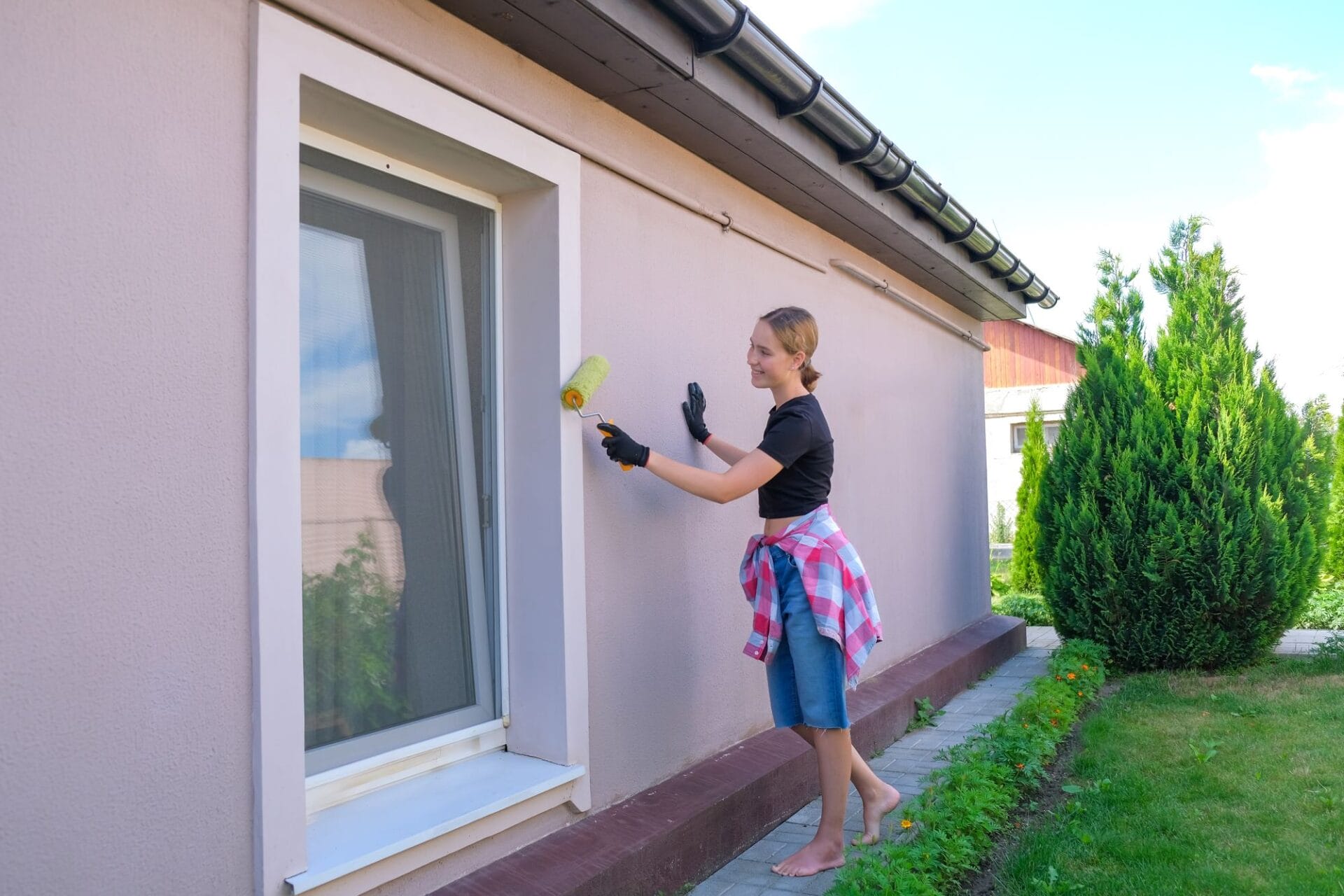Landlord-tenant relationships are generally cordial, and some are even friendly. But, a big rent hike can create instant friction between an owner and renter.
Some cities enforce rental caps so that tenants aren’t suddenly hit with a 10% increase, but even then, the laws don’t cover all buildings or units.
So, just how much can a landlord raise rent? While it might seem unfair, a big annual increase could be perfectly legal depending on where you live.
Table of contents
Different rules for different cities
In Canada and the United States, there are no federal laws governing residential rent increases. However, some states, provinces, and cities have implemented rent control regulations to help protect tenants from sudden rent hikes and unfair evictions.
The downside of these laws is that they can create unintended issues for landlords who must cover escalating expenses and still ensure their investment is profitable.
The list of cities mentioned below is not extensive, but it will give you a clearer idea of how different cities in North America address rent increases.
New York
Almost half of all apartments in New York City are rent stabilized. Rent stabilization is a bit different than rent control. Rent control typically enforces strict increase limits and may even prevent increases from occurring, while rent stabilization allows for gradual but reasonable increases.
Most NYC residential buildings constructed between 1947 and 1973 are protected by rent stabilization laws. That means landlords who own those buildings can only increase rent in accordance with the rent guidelines issued by the Rent Guidelines Board, or for special reasons included in the Rent Stabilization Code.
Rent-stabilized leases that started between October 2024 and September 2025 may be increased by up to 2.75% for a 1-year renewal, and up to 5.25% for a 2-year renewal.
Exceptions
The most common reasons for increasing rent beyond the annual guidelines are major capital improvements and individual apartment improvements. You can read more about those exceptions here.
Landlords must file an application with and receive approval from the Division of Housing and Community Renewal in order to recuperate costs associated with improvements.
Ineligible units
Unfortunately, as is the case in most cities, newer buildings are not rent stabilized.
However, if a lease is currently in effect, landlords cannot impose a rent increase. When a lease expires, or if there is no lease in effect, an owner of an unregulated apartment can charge whatever they feel is reasonable. That is unless the building is protected by the Good Cause Eviction Law.
The Good Cause Eviction is a New York State law that came into effect on April 20, 2024. It gives some NYC tenants of market-rate apartments new protections. Landlords of homes covered by the new law cannot end a tenancy without a “good cause”, and tenants can use this law as a defense in Housing Court.
More importantly, tenants can also use the law to challenge rent increases above a certain level if they are evicted for nonpayment of rent. The law establishes reasonable rent increase amounts based on inflation. A local rent standard is set every year at the rate of inflation, plus 5%, with a maximum of 10% total. A rent increase is considered unreasonable under Good Cause Eviction if the rent increase is higher than the local rent standard.
Finally, the Housing Stability & Tenant Protection Act (HSTPA) of 2019 requires landlords of market-rate apartments to provide tenants with written notice if they intend to raise the rent by at least 5%, or if the landlord decides not to renew the lease.
- If a tenant has occupied a home for less than 1 year, or does not have a lease term of at least 1 year, a 30-day notice is mandatory
- A 60-day notice is required for tenants who have lived in a home for more than 1 year, but less than 2 years, or have a lease of at least 1 year, but less than 2 years
- Tenants who have lived in a home for more than 2 years, or have a lease of at least two years, must be issued a 90-day notice
San Francisco
If a San Francisco residential building was constructed before June 14, 1979, and is not used as a single-family dwelling, it may have both rent control and eviction protection.
Under the San Francisco Rent Ordinance, a landlord who has a rent-controlled unit can only increase a tenant’s rent by 1.7%. This limit is effective March 1, 2024, through February 28, 2025. The Rent Board determines how much rent may be increased each year.

Annual increases can be banked by the landlord and imposed in later years.
Note that all landlords (including those who own market-rate units) must obtain a rent increase license before imposing any annual allowable and/or banked rent increases on a tenant. To get a rent increase license, a landlord must first report to the Rent Board Housing Inventory. The rent increase license does not need to be included with a rent increase notice.
If a renter leaves a rent-controlled unit, there is no limit on how much rent a landlord may charge the new tenant.
Exceptions
Landlords can petition for other increases. Notably, capital improvements can be passed on to the tenant for a maximum increase of 10%, or increased operating and maintenance costs for a maximum increase of 7%, but these increases must be documented and approved by the Rent Board before they are charged to the tenant.
A tenant can request a hardship exemption for the capital improvement and operating and maintenance costs.
Ineligible units
Some newer units have eviction protections under the Rent Ordinance, but do not have rent control protections. These homes include:
- Units built after June 13, 1979
- Most single-family homes and condos (if you moved in on or after Jan 1, 1996)
- Units that have undergone substantial rehabilitation
- Units controlled or regulated by another government unit or agency
If a unit is not covered by San Francisco’s rent control laws, the California Tenant Protection Act (AB 1482) may provide tenants with some rent increase protections.
For example, it sets annual rent increases to no more than 5% + local CPI (CPI = inflation rate), or 10%, whichever is lower. Right now, the increase limit for San Francisco is 8.8%.
Units that were constructed within the last 15 years are exempt, but this law applies on a rolling basis. So, a unit constructed on January 1, 2006 would not have been covered in 2020, but would be protected in 2021.
A landlord must give a tenant 30 days’ written notice when they intend to raise the rent by 10% or less, and 90 days’ notice if the increase (either by itself or combined with another increase in the same year) is more than 10%. If the notice is mailed, the landlord must give the tenant 5 additional days.
Toronto
Cities in Ontario, including Toronto, follow the Residential Tenancies Act. Most buildings completed before 2019 are protected by this act. Currently, the annual rent increase guideline for 2025 is 2.5%.
The guideline is determined based on Ontario’s Consumer Price Index, a measure of inflation calculated by Statistics Canada using data that reflects economic conditions over the past year.
Landlords may raise rent only if they give tenants at least 90 days’ written notice using the correct form. At least 12 months must have passed since the first day of the tenancy, or the last rent increase, before rent can be increased.
If a tenant believes they have received an improper rent increase, they can apply to the Landlord and Tenant Board to request a correction.
Exceptions
Landlords can apply to the Landlord and Tenant Board for above-guideline rent increases under certain circumstances, after eligible capital work has been paid for and completed.
Ineligible units
Rental units occupied for the first time after November 15, 2018, do not have any protections against rental increases. Landlords can also increase rent by any amount when a rent-controlled unit becomes vacant.
Los Angeles
Los Angeles’ Rent Stabilization Ordinance (RSO) regulates rents and evictions. Buildings completed on or before October 1, 1978, generally benefit from the RSO. Newly constructed units that replaced demolished RSO rental units may also be covered.
This law caps annual rent increases based on the Consumer Price Index (CPI). For the period from July 1, 2024, to June 30, 2025, the maximum allowable rent increase is 4%. If the landlord provides gas and electric services, they can add an extra 1% to the rent increase.
When a renter moves out of an apartment that is rent stabilized, the landlord can raise the price to whatever amount they see fit.
Exceptions
If major improvements are needed, the Capital Improvement Program allows landlords to split the cost of approvable expenditures evenly with tenants who will benefit from the improvement.
Eligible improvements include the complete exterior painting of the building, landscaping, flooring, fixtures, doors, windows, fences, security items, meter conversions, major appliances, screens, and window coverings. Landlords are not required to obtain the approval of the tenant before making a capital improvement.
Multiple applications may be submitted, but the maximum temporary rent surcharge that can be applied through this program at one time to each rental unit is $55. The surcharge is collected for 72 months, or until the total amount approved is collected.
Ineligible units
Buildings completed after October 1978 likely won’t receive rent stabilization protection. However, the California Tenant Protection Act (AB 1482) may provide tenants with some rent increase protections. Right now, the increase limit for Los Angeles is 8.9%.
AB 1482 also prohibits landlords from evicting tenants without just cause.
Unfortunately, some properties, like newer constructions, single-family homes (if not owned by corporations), and condo units may still be excluded from the state law.
Rental units may be covered under the city’s Just Cause Ordinance (JCO), which prohibits terminations of tenancies without just cause, and requires relocation assistance for no-fault evictions.
Calgary
There are no rental increase restrictions in Calgary, or anywhere in Alberta, so landlords are technically free to increase rent by however much they feel is appropriate.
Landlords can only increase rent if 1 full year has passed since the tenant moved in, and they cannot increase rent during a fixed-term tenancy.
If a tenant believes a landlord has raised rent by an unreasonable amount, they can take the matter to the Residential Tenancy Dispute Resolution Service. This is a dedicated government service that helps landlords and tenants resolve disputes.
For periodic tenancies, landlords must provide tenants with written notice in advance of the proposed rent increase. The notice must clearly state the date of the increase and be signed and dated by the landlord or property manager.
- For tenancy agreements lasting 3 months, 6 months, 1 year, etc., landlords are required to provide tenants with a rent increase notice at least 90 days ahead of time
- For month-to-month tenancies, landlords must provide at least 3 months’ notice
- In the case of weekly tenancies, landlords must provide at least 12 weeks’ notice
Exceptions
N/A
Ineligible units
N/A
Orlando
There are no rental increase limits in Orlando, or anywhere in Florida. That means landlords can increase rent by any amount.
Florida landlords are required to provide proper written notice before raising rent. The amount of notice required depends on the type of lease:
- For month-to-month leases, landlords must provide 15 days’ written notice
- For leases between 6 – 12 months, landlords must provide 30 days’ written notice
- Year-to-year leases require 60 days’ notice
Most landlords in Orlando can only raise rent once per 12-month period for tenancies that are longer than month-to-month, with a few exceptions.
While there isn’t much a tenant can do if a landlord hikes rent, tenants do have some rights. That being said, rent disputes may have to be brought before a judge.
Exceptions
N/A
Ineligible units
N/A
Does rent control help or hurt renters?
There is no obvious answer to this question, but high-density areas may find it harder to keep rent reasonable when restrictions are in place.
Supporters of rent control policies say it provides financial stability for renters, especially those who like where they live. However, critics argue that it makes cities more expensive for newcomers and young people.
Both arguments are valid. The takeaway here is that rental regulations are only one part of a much larger economic picture, and can provide some benefits as well as unintended challenges.






















